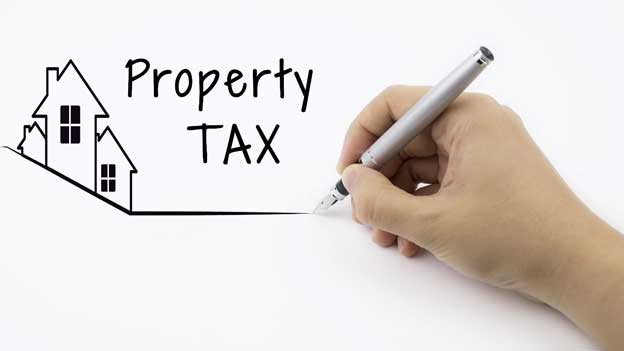If you were recently hit with a tax bill that caught you a little off guard, you might be on the lookout for how you can lower your property taxes for next year’s tax season. To do this, you will need to learn a little bit more about how property taxes work. Don’t worry though, we have got you covered. On this page, we will cover all that you need to know on this topic.
Is It Possible to Lower Your Property Taxes?
Property taxes are an inevitable part of being a homeowner. Once you accept this, your focus will probably switch towards how you can avoid paying a dime more than you need to pay. After all, you probably are okay with paying your fair share in taxes. Your goal, then, should be geared towards how you can lower your property taxes. Below, we will break down 10 tips for lowering your property taxes!
1. Move to a More Affordable Area
If you jumped on a deal on a home only to find out that it was a little too good to be true, then you should keep the option open for moving shortly. If you do the proper research, you will be able to find an area with lower property tax rates. This is the easiest way you can ensure that you pay a reasonable rate for property taxes.
2. Limit Your Remodeling Projects
One of the biggest tips you need to keep in mind while trying to lower your property taxes is that if you invest in your home, add new amenities, undertake remodeling projects, and so on, you will add value to your home. When you do this, your property taxes will also increase.
3. Know How Property Taxes Work
Depending on your locality, you will have a unique set of rules that you need to follow. There are millage rates and assessment value ratios that will be different in each location. Therefore, check with your local authorities to see what these rates are so that you will be best prepared for estimating your property taxes.
4. Have Your Property Assessment Data
Did you know that your local county building will have your property card on file with the latest assessment data? If not, this will be something that you need to go and gather on your own. This will give you insight into what the county deems your property to be worth, and why.
5. Don’t Clean for the Assessor
If you live in a county where the assessor comes to view your home, save yourself some time and keep your home as it is. You might even consider making it a little dirtier! Having a clean and tidy home will only increase the chances of having a higher assessment value.
6. Build a Friendship with Your Assessor
When the assessor comes over, do your best to be friendly (but not fake) with them. Offer them coffee, ask about how their day is going, inquire about their job. Do what you normally do with somebody that you are trying to build an authentic friendship with when they come over.
7. Know Your Surrounding Neighbors’ Homes Value
When you run into problems with your assessment, one of the ways to see if you received an unfair value assessment is to look up the value of similar homes in your neighborhood. If you start to notice that your home is disproportionately high in assessment value, you might need to file an appeal.
8. Get Legal Help
One of the best ways that you can bypass a lot of the hassle involved in getting a fair value assessment is to get legal help. You can consider hiring an attorney, or a professional such as Heller & Consultants Tax Grievance in Long Island. This is usually the best option for those who don’t have a lot of time on their hands for handling
9. Check to See if You Qualify for Tax Breaks
There are many different potential tax breaks that you might qualify for. Usually, you will need to check with your local authorities to see what these might be. Typically, a homeowner that qualifies for a property tax break will not even know. It’s important to keep in mind that nobody is going to hold your hand and call you on behalf of the government to inform you of tax breaks. You need to do this research on your own.
10. Know How Tax Grievances Work
When your property receives a value that is higher than the fair assessment value, then you can file for tax grievances. To do this, you will need to formally challenge the assessment of your home and get the value changed. Then, you will be able to pay fewer taxes. The idea here is that you will only end up paying your fair share of taxes, and not a dime more!
Need Some Help Lowering Your Property Taxes in Long Island?
If you live in Suffolk or Nassau County in Long Island, then you might need some help to get your tax grievances handled. As you know, there are some pretty expensive property taxes already here in place in these counties. Here at Heller & Consultants, we know what it takes to ensure that you get a fair property value assessment and that you pay the right amount of taxes. Give us a call today in Nassau County: (516) 342-4849 or in Suffolk County: (631) 302-1940 to schedule a consultation.

